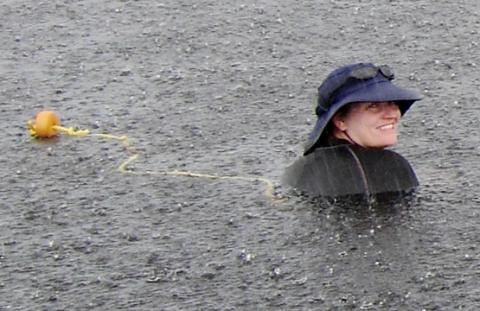
Florida Fish and Wildlife Conservation Commission
In order to assess the adult abundance of bay scallops, I get to snorkel/scuba dive each summer in the shallow water seagrass beds along the coast of Florida, which are also home to several other marine invertebrates.
Education
- B.S., Marine Biology, University of North Carolina at Chapel Hill
Salary
$25,000 - $40,000
Contact
What is your current job and what does it entail?
I am an assistant research scientist at the Florida Fish and Wildlife Conservation Commission's Fish and Wildlife Research Institute in St. Petersburg. I work in the molluscan fisheries subsection of the fisheries biology group. In my job I help monitor and assess several aspects of bay scallop and eastern oyster biology.
What was the key factor in your career decision?
During my college invertebrate biology class I realized that I wanted to be a marine biologist, preferably working with some species of invertebrate. They were just so cool.
What do like most about your career?
In order to assess the adult abundance of bay scallops, I get to snorkel/scuba dive each summer in the shallow water seagrass beds along the coast of Florida, which are also home to several other marine invertebrates.
What do you like least about your career?
Marine biology jobs are hard to get and options for growth and upward movement aren't always available.
What do you do to relax?
I'd say spend time with my family, but as a mother of a six-year-old and a three-year-old, there's not a lot of down time. We do like to go to the beach or a park, and if I manage to get some personal time I love to go to the movies.
Who are your heroes/heroines?
Edie Widder -- working with giant squid must be like a dream come true!
What advice would you give a student who expressed an interest in pursuing a career in your field?
Make sure it's where your heart/passion really is, and then be patient. Volunteering with a local organization may also help to narrow down what area of marine biology you want to pursue.
Are career opportunities in your field increasing or decreasing and why?
From what I've observed, recent budget cuts have decreased the number of jobs available in Florida, although I'm not sure if the same is true for other states or if the private sector is experiencing the same trend.
What will you be doing 10 years from today?
Still counting scallops and oysters, and hopefully adding in some other invertebrates. Maybe even a giant squid?

